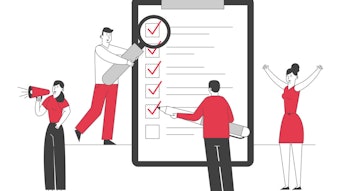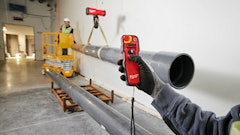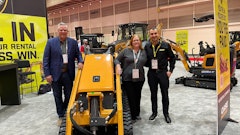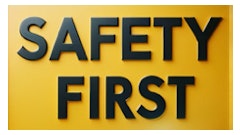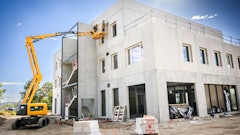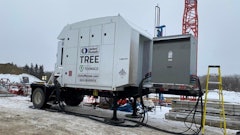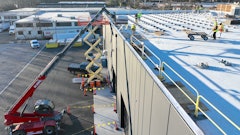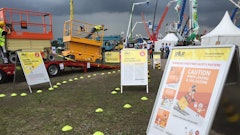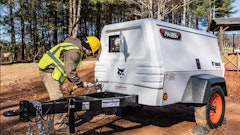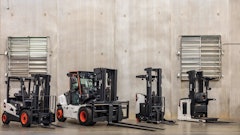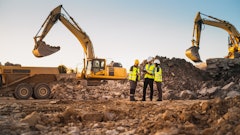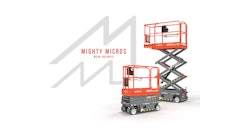
In his speech to more than 350 industry professionals from all over the world at the annual IPAF Summit in Miami last week, United Rentals CEO Michael Kneeland said the second half of 2013 will be stronger than the first half, with the market seeing 8 percent growth in 2013 and 11 percent in 2014.
Kneeland pointed to a secular shift toward renting as a key driver in this growth, adding that "we're now starting to see residential come up." Typically nine to 12 months after residential construction sees an uptick, non-residential activity follows, Kneeland said, noting half of United Rentals' revenue comes from the non-residential and industrial markets.
United Rentals plans to spend more than $1 billion in capital expenditures by the end of 2013, and possibly a bit more in 2014, according to Kneeland. Of that, 35 to 40 percent will go toward access equipment.
"Access equipment is about safety and productivity. That's a key driver," Kneeland told the group, which gathered at the Hilton Miami Downtown to attend several powered access-related sessions. "As developing countries, like China and Brazil, begin to see their wages increase as well as the need for safety, access equipment is going to grow. In some areas, it's probably going to explode. We're very bullish about access for the future."
Kneeland reported about 43 percent of United's fleet is made up of access equipment and it brings in 39 percent of the company's rental revenues. The access fleet includes approximately 100,000 units which earned time utilization of 73.9 percent during the last quarter of 2012. "This is evidence that we're firmly engrained in aerial," Kneeland said.
Kneeland also reported United Rentals has saved $104 million during the first eight months of its integration with RSC. He wants the company to round out the year with more than $250 million in savings.
"Recovery is on its way," he said.
Ron DeFeo, Terex CEO, opened the IPAF Summit with a statement on how safety is a personal issue and impacts not just you but loved ones as well. He reported Terex has had five fatalities in his 20-year involvement, but two of those occurred in the last six months.
DeFeo shared that the commitment to a focused safety culture has produced a major improvement, and excluding the most recent Demag acquisition, work lost time rates have been brought down to 1.14 from 3.92 in 2007. He also pointed out that even the world-class standard of 0.4 is a goal to attain it is still not good enough. He challenged attendees to make a commitment to safety, but in order to do so, they must quantify results and measure improvements.
Jordan Barab, deputy assistant secretary of labor for OSHA, presented on the efforts being made by the agency to reduce the number of deaths attributed to falling from height. He reported that over 4,500 workers die every year in the United States, and of those, 250 are killed from falls.
Teresa Kee of NES Rentals and Giles Councell of IPAF reported on the successful testing and implementation of AWPT's access platform eLearning module for operators training. Also presenting was a team of NES employees, including Tony Radke, Sue Rudnick, Mark Ferguson, and Tim Burwood, who were joined by Tony Groat of AWPT to share their perspective and experiences of adopting and implementing the new program and its acceptance by NES employees. Kee opened by sharing that NES had set an internal goal to have trained 98% of its 1,000 employees and was happy to report they successfully accomplished this goal.
Ebbe Christensen, president of Reachmaster, presented during the access platform breakout session the topic, "Mission Impossible," which focused on how to train an organization to sell, service, and support a compact lift rental and sales organization. Christensen underscored the importance of a strong raining program at all levels to ensure success in all areas of one's organization. This includes both employees and powered access equipment users.
Following the IPAF Summit, the International Awards for Powered Access (IAPAs) were held. There were a total of 86 entries. Here's a complete list of winners.



